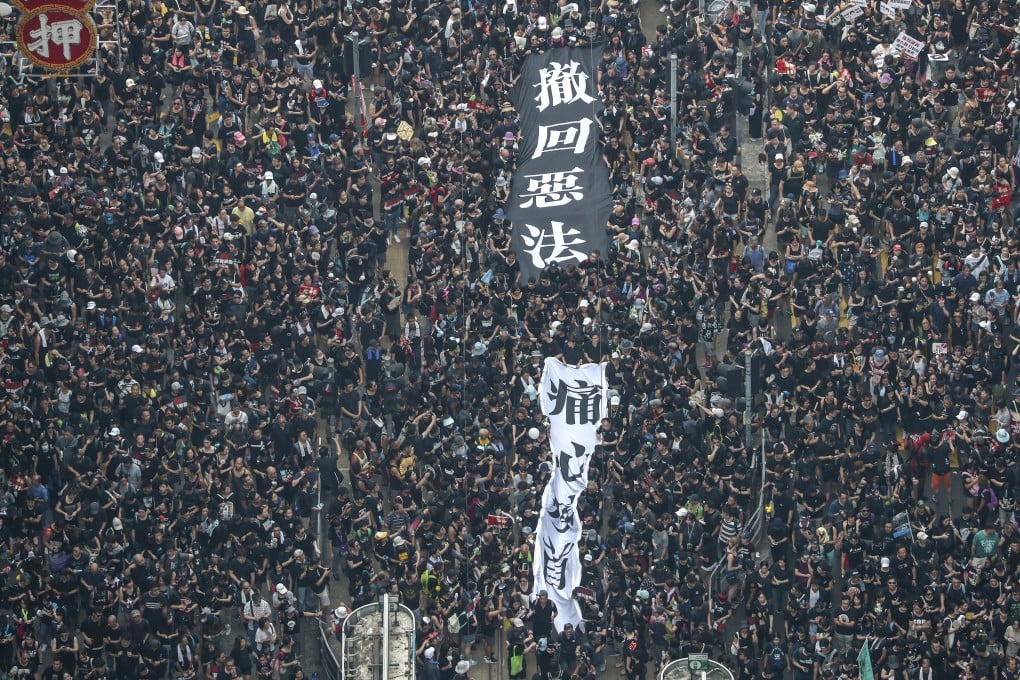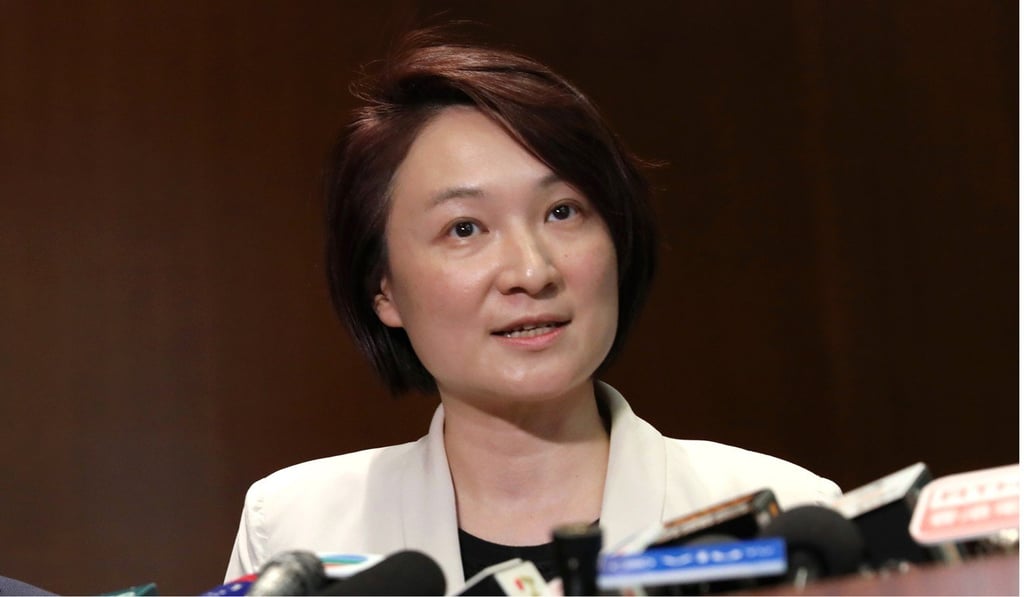Hong Kong’s largest pro-establishment party ‘would not oppose’ city leader Carrie Lam announcing full withdrawal of extradition bill to heal rifts in society
- But DAB chairwoman Starry Lee also warns demands for an inquiry into police use of force in June 12 protests will only further dampen officers’ morale
- Student unions issue joint statement to reiterate protests will continue until government meets their demands

But Starry Lee Wai-king, chairwoman of the Democratic Alliance for the Betterment and Progress of Hong Kong, also warned on Sunday that demands for an independent inquiry into police use of force in protests outside the Legislative Council on June 12 could “easily come up with biased conclusions”.
Lee was not alone in offering advice to the government amid the fallout over the bill, suspended last weekend after two massive protests and the violent June 12 clashes between protesters and police.
Liberal Party leader Felix Chung Kwok-pan called for the appointment of new advisers to Chief Executive Carrie Lam Cheng Yuet-ngor’s cabinet to provide a wider spectrum of views while former minister Frederick Ma Si-hang urged the government to pay attention to the dissatisfaction of young people.

Student unions of nine higher education institutions on Sunday issued a joint statement to reiterate that protests would continue until the government met their four demands: withdrawal of the bill; retraction of all references to the clashes on June 12 as a riot; all charges dropped against protesters; and an independent inquiry on the use of force by police.